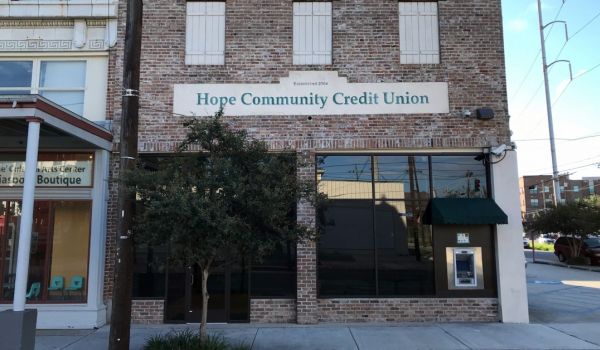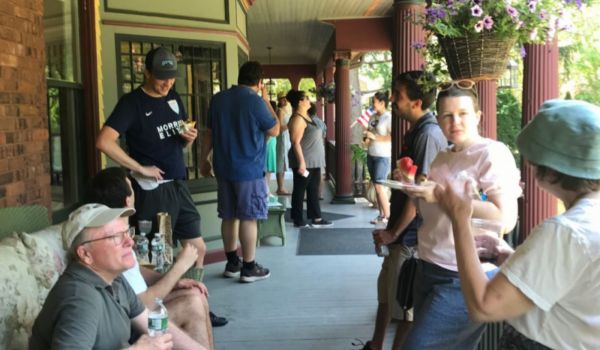When the Copper Way housing development opens in Spanaway, Washington, late this year, it will provide needed homes to hundreds of low- to middle-income families in the region. What makes the project most notable, however, is the unique financing model that made it possible.
The development is one of the first projects to come out of the Evergreen Impact Housing Fund (EIHF). Community members, local leaders, representatives of several Washington credit unions, and Spokane-based contractors, Inland Group, celebrated the start of construction last July.
“The [EIHF] was conceptualized as a way for private, public and philanthropic sectors to come together and bring more attention and more resources to bear on the affordable housing crisis,” said Kris Hermanns, fund manager at EIHF and chief impact officer at Seattle Foundation.
According to needs projections from the Washington State Department of Commerce, the state needs to add 1.1 million homes over the next 20 years, and more than half of them need to be affordable for low-income residents. Washington’s unhoused population has been growing for years and is most acute in Seattle and King County. Spanaway is in Pierce County, which the state Department of Commerce estimates will need more than 100,000 new housing units over the next two decades.
Tonita Webb, CEO of Verity Credit Union, one of the credit union partners that supported the Copper Way development, said she sees the housing crisis firsthand in her work. It affects Verity’s membership and employees, and there are encampments home to unhoused community members near the credit union’s headquarters in Seattle’s Northgate neighborhood.
“We see our members migrating to Pierce County because it’s getting more and more expensive to live in the Seattle area,” Webb says. “Contributing to affordable housing units in Pierce and King County is the best way that we can make an impact in this housing crisis.”
Launched in 2020, EIHF uses low-interest, long-term loans to fill financing gaps that otherwise make affordable housing projects unviable for developers. “Building family-size units is not necessarily efficient in terms of cost and revenue,” Hermanns says. “We’re trying to create a financial incentive so three- to four-bedroom units can be built.”
EIHF works alongside the Washington State Housing and Finance Commission (WSHFC), ensuring developers who commit to affordable housing projects can benefit from EIHF’s private capital, public funds via WSHFC’s financing programs, and other incentives, like the low-income housing tax credit.
The Copper Way project in Spanaway will comprise 256 garden-style apartments, and more than 80% of the units will have two or more bedrooms. All units will be reserved for people earning 60% or less of the area’s median income. The project is expected to open to local families in late 2024 or early 2025.
Copper Way is the second of EIHF’s projects supported by a consortium of Washington-based credit unions, including BECU, WSECU, Sound Credit Union and Verity. Construction began on the first credit union-backed project, Solera in Renton, King County, in 2021. It is slated to open in 2025. Half of Solera’s 550 multi-family units will be affordable housing units, and 20% will be reserved for disabled residents.
Three other EIHF projects are also underway in Seattle, Kirkland and Renton — altogether, the in-progress projects will provide more than 800 housing units. Each of EIHF’s developments is near rapid transit lines and amenities to support working families, like parks and schools.
Hermanns says partnering with credit unions to bring these projects to life was an obvious choice. “Credit unions not only have a commitment to place, but they have a commitment to people, their members and the community in which they are rooted.”
Webb says mission-driven financing is what credit unions were made for. “We were created to help our communities — and it’s the right thing to do.”

This article is part of Backyard, a newsletter exploring scalable solutions to make housing fairer, more affordable and more environmentally sustainable. Subscribe to our weekly Backyard newsletter.



















